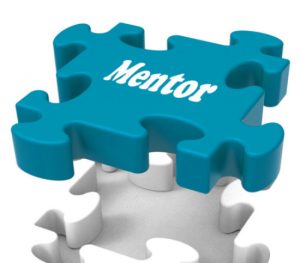 Oprah Winfrey, Sheryl Sandberg, Indra Nooyi, Tina Fey and I all had mentors who dramatically influenced our careers. In fact, we can’t imagine how we would have gotten where we are today without the support and sponsorship our mentors provided.
Oprah Winfrey, Sheryl Sandberg, Indra Nooyi, Tina Fey and I all had mentors who dramatically influenced our careers. In fact, we can’t imagine how we would have gotten where we are today without the support and sponsorship our mentors provided.
On the face of it, it would appear that the news in a recent Harvard Business Review article that more women than men report having mentors would be good. Yet, men are still getting promoted faster and higher. If women are being mentored so thoroughly, why aren’t they moving into higher management positions at the same rate or faster than their male colleagues?
What’s Missing?
For years, I have been asserting that all mentoring is not created equal. That’s because the most effective mentoring partnerships include a special kind of support — called sponsorship. Your mentor, or in some cases your supervisor, goes beyond giving feedback, advice or coaching and also uses his or her influence with senior executives to advocate for you and introduces you to industry contacts that broaden your network and access to resources.
Recent research has revealed that high-potential women are actually being over-mentored and under sponsored compared to their male colleagues. And that is one of the primary reasons why women are not advancing. Without sponsorship, women are less likely than men to be promoted to top positions and are also more reluctant to go after them.
What does sponsorship look like?
Mentors who are willing to sponsor their mentees as well as supervisors who want to cultivate their direct reports can sponsor effectively without adding a lot of extra time or effort to their current responsibilities. Here are some tips to get you started:
- Set an example for your mentee by being open about your own path to success.
- Be willing to take on mentees whose work history includes non-traditional schedules or career paths.
- Facilitate open discussions with your mentee about her career aspirations, listen intently and co-create strategies for how you can best support her in reaching those goals.
- Publicly acknowledge your mentee’s accomplishments within your organization.
- Be an advocate for your mentee. Find opportunities for them to grow in the organization through such avenues as recommending them for promotion and assigning them high-profile projects.
- Prompt your mentee to raise her hand for higher-profile opportunities.
- Connect your mentee to a variety of high-potential role models, regularly refreshing the connections as her needs and focus change over time.
Whether you are a mentor or mentee, you can share this article with your mentoring partner and use it as a starting point for a conversation about how you can enhance your work together.
Mentees, never forget, you can be the driver in your relationship and ask for what you need in the way of coaching and support.
Susan Bender Phelps is the CEO and lead trainer at Odyssey Mentoring & Leadership. She is the author of Aspire Higher, true stories of successful business and career mentoring. She helps her clients who aspire higher to get where they want to be.



This is terribly misleading. The LAST thing women need is sponsorship combined with mentoring. Developmental mentoring, as practised in Europe and in some more far-sighted organizations in the US, is about helping people with the quality of their thinking about issues that are important to them. In a sponsorship environment, neither party can be truly authentic — the mentee is inevitably drawn to being seen at her best, to gain the sponsor’s approbation. Moreover, linking mentoring to sponsorship disempowers women — their success is not surprisingly seen as a result of male sponsor’s influence, rather than their own doing.
The key to making mentoring work is to decouple it from the relatively directive advising, low-key sponsoring behaviours, not increase these!
Professor, I understand your objection to the link between mentoring and sponsorship. Of course, I disagree. Many corporate mentoring programs are failing because though they give mentees developmental guidance and support, the organizations do not provide tangible steps to advancement. If a mentor is well-connected, both inside and outside their organization, it is important for them to use their connections and visibility to advocate for their mentee when he or she is ready. My years of experience in designing mentorship programs and training people to be effective in mentoring partnerships has proven this refinement to be critically important. I believe your perspective is one of the institutional or systemic biases that keeps women from advancing. Thank you for commenting and giving me an opportunity to answer. I’d love it if others would weigh in as well. What do you think? What has your experience been?